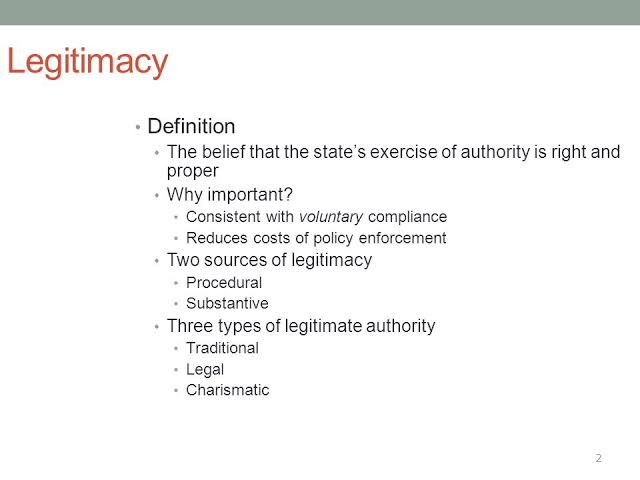Concept Of Legitimacy – Political Science Notes – For W.B.C.S. Examination.
আইনীকরণের ধারণা – রাষ্ট্রবিজ্ঞানের নোট – WBCS পরীক্ষা।
Gaining legitimacy is a need that is not restricted to liberal democratic regimes but is considered a basic condition of rule, because governing regimes without at least a minimal amount of legitimacy would face deadlock or collapse. Therefore, every regime seeks to justify its reign, and this justification can be based on various concepts. In history there have been competition and changes between different concepts of legitimacy. Traditionally, the reign of monarchs was justified on the grounds of their divine origin. The Enlightenment helped to challenge this religious source of legitimate rule, and democratic revolutions at and after that time declared the will of the people to be the basic source of legitimacy. In this context of modernization, Max Weber developed a typology of forms of legitimacy (legitimate authority) that is still one of the most important points of reference. He differentiated a traditional, a charismatic, and a legal-rational type of legitimacy. He basically diagnosed a historical transformation from traditional to legal-rational types of legitimacy, in which legitimacy based on the charisma of a (revolutionary) leader formed a transitory phenomenon.To view Political Science Optional Syllabus , Click Here.
Weber’s description of the modern type of legitimacy as legal-rational points to an orientation among modern conceptions of legitimacy that is strongest in the German-speaking world. A constitutionalist conception of legitimacy puts most emphasis on regular procedures employed to formulate the will of the people and also on normative limitations and judiciary controls of governing majorities to secure equal treatment and individual liberty. In contrast, conceptions of democratic legitimacy in the Anglo-Saxon world focus more on the aspects of popular participation and regime accountability secured by free and fair elections combined with a system of political checks and balances (in contrast to the legalistic approach of inter-institutional control in the constitutionalist perspective). Another line of thinking about democratic legitimacy, which has mainly French origins, has a different, more collectivist understanding of the will of the people. Not so much the rules and the opportunities to participate but the affective commitment to the community and to its administrative representations lays the basis for democratic legitimacy. In consequence, patriotism and civic nationalism secure loyalty to the system of governance.
Please subscribe here to get all future updates on this post/page/category/website


 +919674493673
+919674493673  mailus@wbcsmadeeasy.in
mailus@wbcsmadeeasy.in







































































































